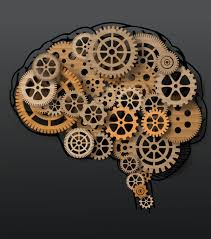Blame it on the brain
Written and accurate as at: May 25, 2016 Current Stats & Facts

The different parts of the brain
Our brains are divided into several different parts that directly affect our investment decision-making. However rather than dividing these into left and right, neuroscientists suggest a more meaningful division is between old and new parts of the brain.
The old parts of the brain (or limbic system) house the reflexive functions of the brain such as our flight or fight instincts. This part of the brain evaluates external sensations and translates them into emotions such as fear and joy.
While these instincts served our ancestors well against predators on the African savannah, when it comes to investing, these types of emotional responses can lead us to make irrational decisions. Common mistakes include overreacting to dangers that do not exist and taking huge risks in the pursuit of a gain.
On the other hand, the new parts of the brain (including the prefrontal cortex) house our more reflective functions. This is the rational, unemotional part of the brain that helps us organise past experiences, form theories and plan for the future.
In many cases, this part of the brain can help us overcome some of the irrational emotion-based mistakes formulated in the limbic systems. However it also has its own investment downfalls. One of the most common of these is a tendency to search for patterns even when there are none. This often leads investors to believe they have found a secret investment formula, which is bound not to actually work.
With both parts of our brain consistently leading us astray, how can we make good investment decisions?
Here are some suggestions:
Keep a long-term approach
Paying attention to short-term market fluctuations is bound to trigger an emotional response in your limbic system. This could lead you to make an irrational choice based on fear or greed.
Diversify
A diversified portfolio works to smooth out investment returns, reducing the likelihood that big investment losses will send your emotions into overdrive and cause you to make irrational decisions.
Ignore the recent past
Your brain is hard-wired to seek out patterns in data, even when none exist. This often leads us to make predictions based on recent past performance.










